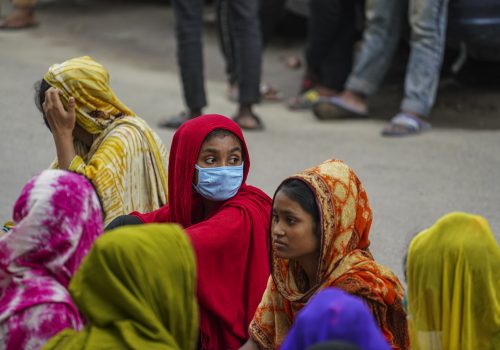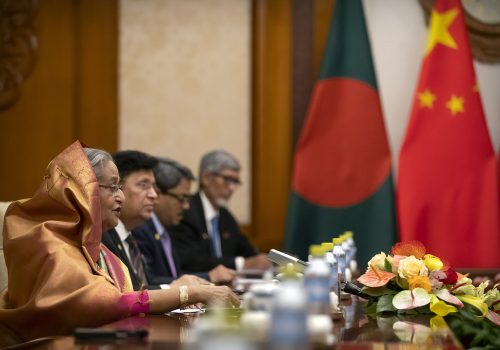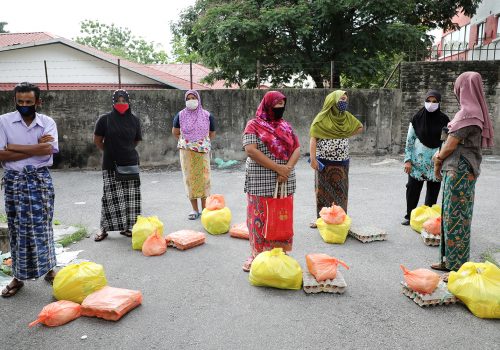Four years after fleeing to Bangladesh from Myanmar, 880,000 Rohingya refugees in Cox’s Bazar and Bhashan Char continue to face new and unrelenting challenges fueled by the global pandemic, flooding, and fires, which have cost over thirty lives and twenty-four thousand relocations in 2021 alone. Notably, the recent murder of Rohingya Muslim advocate and community leader Mohib Ullah in late September puts the population in an uncertain and precarious position, as Ullah gave the Rohingya a voice in the international community and fought passionately for their rights.
What does, however, offer a glimmer of hope is a new agreement between Dhaka and the United Nations (UN) to start operations on Bhashan Char that will address the island’s humanitarian needs. Yet, much remains to be done.
Please join the Atlantic Council’s South Asia Center and Ambassador M. Shahidul Islam of Bangladesh to the United States on Wednesday, October 27 at 10 a.m. ET to discuss the recent Bangladesh-UN agreement for humanitarian support at Bhashan Char, as well as how the United Nations and the international community more generally can support Rohingya human rights as well as Bangladesh’s capacity to provide for the refugees.
This program is the first in a series jointly hosted by the Atlantic Council and the Embassy of Bangladesh in Washington, DC. The second will focus on Bangladesh’s role as a leader for regional economic integration.
Featuring
H.E. Ambassador Shahidul Islam
Ambassador of Bangladesh to the United States
Moderated by
Rudabeh Shahid
Nonresident senior fellow
Atlantic Council’s South Asia Center
Introductory remarks by
Irfan Nooruddin
Director
Atlantic Council’s South Asia Center

The South Asia Center is the hub for the Atlantic Council’s analysis of the political, social, geographical, and cultural diversity of the region. At the intersection of South Asia and its geopolitics, SAC cultivates dialogue to shape policy and forge ties between the region and the global community.


